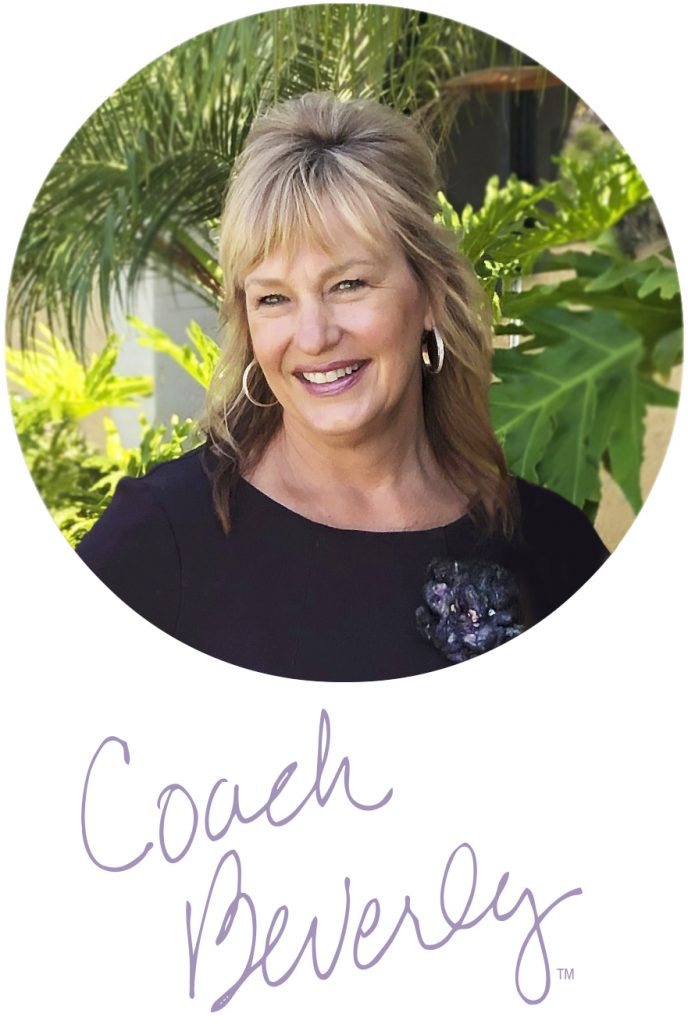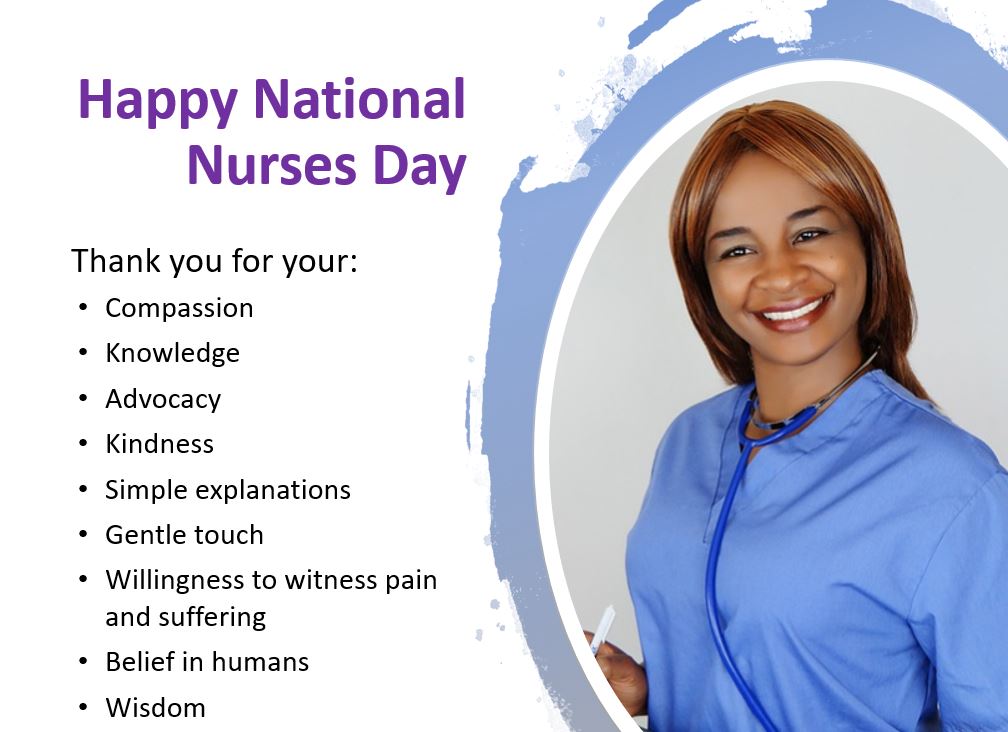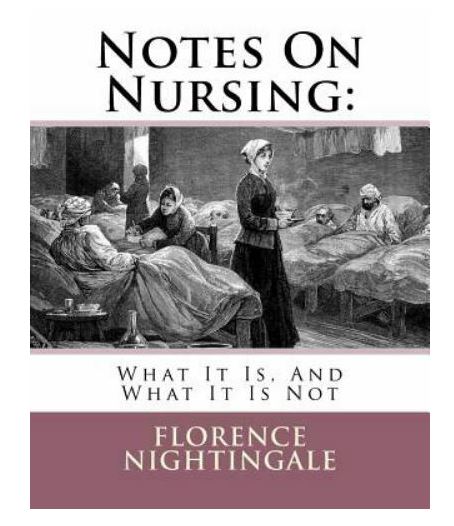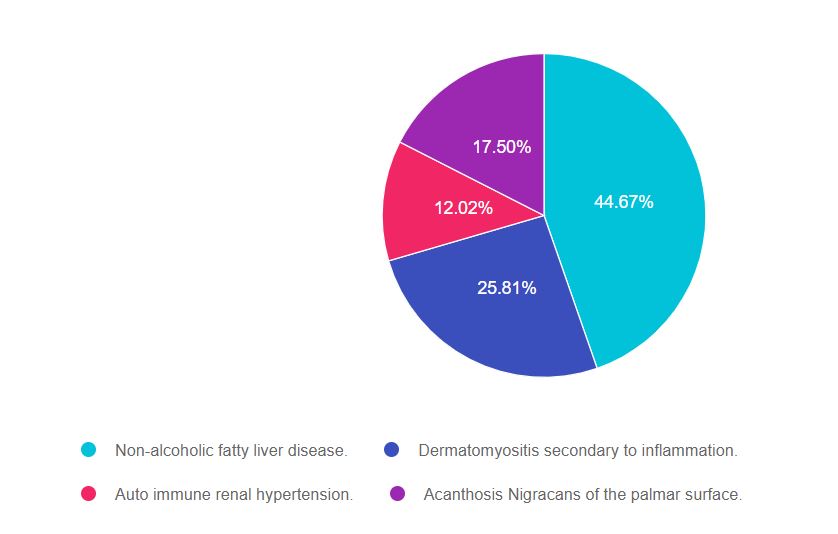Question of the Week | Why is A1c on the Rise?

RT is 33 years old and has had diabetes for the past 20 years. RT uses an insulin pump and CGM and works hard to keep A1cs less than 7%. Their most recent A1c increased to 7.9% and RT sets up an appointment with the diabetes specialist for help. After downloading the report, the specialist thinks they have discovered the reason behind the increasing A1c.
Which of the following would most likely explain the A1c increase?
- Carbohydrate bolus insulin omissions
- Basal insulin rate set too high
- Bolus insulin given 15 minutes before meal
- CGM sensor malfunction
Click here to test your knowledge!
Want to learn more about this topic? Join us for our
Level 4 | Solving Glucose Mysteries for Type 1 | 1.5 CEs |Recorded & Ready for Viewing!

Why do the blood sugars keep dropping after meals? Is the basal insulin set correctly? What adjustments are needed for exercise?
During this 60 -90 minute webinar Coach, Beverly addresses each of these glucose mysteries and more, using a person-centered approach. She describes a stepwise approach to evaluate glucose patterns and correct common issues encountered by people living with type 1 diabetes.
By attending this webinar, you will gain confidence in evaluating glucose patterns and making recommendations for improvement.
Objectives
- Describe common glucose mysteries encountered by people with type 1 diabetes.
- Using a stepwise approach, evaluate factors affecting glucose patterns.
- State interventions to increase time-in-range and improve quality of life.
Join us for our Live Webinars
Can’t join live? No worries, we will record the webinar and post it to the Online University!
Sign up for Diabetes Blog Bytes – we post one daily Blog Byte from Monday to Friday. And of course, Tuesday is our Question of the Week. It’s Informative and FREE! Sign up below!
[yikes-mailchimp form=”1″]Accreditation: Diabetes Education Services is an approved provider by the California Board of Registered Nursing, Provider 12640, and Commission on Dietetic Registration (CDR), Provider DI002. Since these programs are approved by the CDR it satisfies the CE requirements for the CDCES regardless of your profession.*
The use of DES products does not guarantee the successful passage of the CDCES exam. CBDCE does not endorse any preparatory or review materials for the CDCES exam, except for those published by CBDCE.
May Newsletter | Diabetes Ed Celebrates Nurses Week
May eNews | Diabetes Ed Celebrates Nurses Week

Happy National Nurses Day and Week!
When I was considering college as a teenager, my dad offered me some simple advice, “Why don’t you become a nurse?” I rolled my eyes and said, “Nah, I am going to be a social worker.” Four years later, I stood proudly with my white cap and nursing pin securely fastened as an RN graduate.
As I reflect on my years in this noble profession, I have witnessed the most unselfish acts of love and pure heroism by my nursing colleagues. 2020 -2021 have been rough times for the four million nurses in the United States.
Nurses have not wavered from their commitment to providing care to even the sickest among us.
Like the founder of nursing, Florence Nightingale, nurses are “Holding the Lamp” and shining it in dark places that are scary and unknown to provide comfort to those who need it most.
In this newsletter, we celebrate Nurses.
Has a nurse touched your life? Check out our blog on 5 ways you can show thanks. Did you know that in addition to founding nursing, Florence Nightingale was a statistics whiz? You can discover more about this trailblazer in the blog below.
This newsletter also offers a fresh perspective on using the plate method to encourage healthy eating while promoting the pleasure of eating.
Also, we all know that living with type 1 diabetes isn’t easy. We are hopeful that you can help us get the word out about a study geared toward not only supporting people with type 1 but providing them with excellent information and problem-solving coaching. Read more about the Embark Study below and thank you for sharing this unique opportunity with those living with type 1 diabetes.
Finally, we are excited to share an updated approach to managing diabetes in the hospital setting and encourage you to take a look at our question and rationale of the week.
Thank you nurses for the love and care you provide every day!
Coach Beverly, Bryanna, and Jackson
Click here to read our full May 2021 newsletter.
Featured Blogs
- Remembering the “Lady with the Lamp” on Nurses Week
- A Diabetes Nurse Takes a Fresh Look at the Plate Method
- Type 1 Diabetes can be Tough – Embark Can Help
- Hospital Diabetes Care Update
- Question of the Week- Type 1 & Surgery
- Rationale of the Week Mystery Condition
Featured Items
- New! Solving Glucose Mysteries for Type 1 Webinar | 1.0 CE – Recorded & Ready for Viewing!
- New! Solving Glucose Mysteries for Type 2 Webinar | 1.0 CE – May 19th
- New! Insulin Calculation Workshop | 1.0 CE – May 27th
- Preparing for CDCES FREE Webinar – July 8th
- Preparing for BC-ADM FREE Webinar – July 15th
- Free Resources Catalog
Sign up for Diabetes Blog Bytes – we post one daily Blog Byte from Monday to Friday. And of course, Tuesday is our Question of the Week. It’s Informative and FREE! Sign up below!
[yikes-mailchimp form=”1″]Accreditation: Diabetes Education Services is an approved provider by the California Board of Registered Nursing, Provider 12640, and Commission on Dietetic Registration (CDR), Provider DI002. Since these programs are approved by the CDR it satisfies the CE requirements for the CDCES regardless of your profession.*
The use of DES products does not guarantee the successful passage of the CDCES exam. CBDCE does not endorse any preparatory or review materials for the CDCES exam, except for those published by CBDCE.
Happy Nurses Day – 5 Ways to say Thank You
When I was considering college, my dad offered me some simple advice, “Why don’t you become a nurse?” I rolled my eyes and said, “Nah, I want to be a social worker.” Four years later, I stood proudly with my white cap and nursing pin securely fastened as an RN graduate.
As I reflect on my years in this noble profession, I have witnessed the most unselfish acts of love and pure heroism by my nursing colleagues. I have highlighted some top qualities that represent my gratitude, but this thank you list could encompass an entire page.
2020 – 2021 has been a tough year for the four million nurses in the United States. But they have not wavered from their commitment to providing care to even the sickest among us.
Like the founder of nursing, Florence Nightingale, you are all “Holding the Lamp” and shining it in dark places that are often scary and unknown to provide comfort to those with the greatest need.
This week is a perfect time to let our nursing colleagues, mentors, professors, and friends know how much they are appreciated.
Coach Beverly thanks each nurse who has cared for me, held my hand, and reassured me that I am going to be okay.

5 Ways to Thank a Nurse
- Send them a handwritten note sharing how they helped you when you needed it most.
- A bundle of colorful flowers with a special note
- A basket of fruit or healthy snacks with a few sweet treats too!
- Sharing a heartfelt story on social media about how a nurse made an impact on your life.
- Letting their supervisor know how they provided you with care and comfort.
- Let a nurse mentor or teacher know how they impacted your life.
These are just a few ideas to get started. As you think of that special moment of gratitude, maybe you will come up with the perfect idea for that one special nurse.
With gratitude,
Coach Beverly
Sign up for Diabetes Blog Bytes – we post one daily Blog Byte from Monday to Friday. And of course, Tuesday is our Question of the Week. It’s Informative and FREE! Sign up below!
[yikes-mailchimp form=”1″]Accreditation: Diabetes Education Services is an approved provider by the California Board of Registered Nursing, Provider 12640, and Commission on Dietetic Registration (CDR), Provider DI002. Since these programs are approved by the CDR it satisfies the CE requirements for the CDCES regardless of your profession.*
The use of DES products does not guarantee the successful passage of the CDCES exam. CBDCE does not endorse any preparatory or review materials for the CDCES exam, except for those published by CBDCE.
Question of the Week | Type 1 Needs Surgery

MS is 63, has type 1 diabetes, and will be having knee surgery. In addition to using an insulin pump and CGM to manage their type 1 diabetes, MS also takes empagliflozin (Jardiance) 25 mg daily to improve glucose levels.
In preparation for the upcoming surgery, which of the following is an accurate statement?
- Transition to insulin injections in preparation for surgery.
- Maintain perioperative glucose between 80-110.
- Stop empagliflozin (Jardiance) 3 days prior to surgery.
- Reduce basal insulin by half the night before surgery.
Click here to test your knowledge!
Want to learn more about this question and more?
Join us for our Upcoming Webinar
Basal/Bolus Therapy in Hospital 1.5 CEs
Recorded and Ready for viewing

Glucose control in the hospital matters! This course provides participants with a step-by-step approach to safely and effectively implement Basal Bolus Insulin Therapy in the inpatient setting. We discuss appropriate insulin dosing based on the person’s clinical presentation and apply dosing strategies to a variety of case studies. Included are hard-to-manage situations that commonly occur in hospital settings and a discussion of solutions that will keep people safe and get glucose levels to goal. In addition, sample basal/bolus and insulin drip guidelines plus lots of resource articles are included.
Topics Include:
- Discussing appropriate insulin dosing based on the individual’s clinical presentation
- Applying dosing strategies to a variety of case studies
- Introduce hard-to-manage situations that commonly occur in hospital settings
- A discussion of solutions that will keep people safe and get glucose levels to goal
- Sample basal/bolus and insulin drip guidelines plus lots of resource articles are included
Join us for our Live Webinar
Including Brand New Specialty Courses!
Can’t join live? No worries, we will record the webinar and post it to the Online University!
Sign up for Diabetes Blog Bytes – we post one daily Blog Byte from Monday to Friday. And of course, Tuesday is our Question of the Week. It’s Informative and FREE! Sign up below!
[yikes-mailchimp form=”1″]Accreditation: Diabetes Education Services is an approved provider by the California Board of Registered Nursing, Provider 12640, and Commission on Dietetic Registration (CDR), Provider DI002. Since these programs are approved by the CDR it satisfies the CE requirements for the CDCES regardless of your profession.*
The use of DES products does not guarantee the successful passage of the CDCES exam. CBDCE does not endorse any preparatory or review materials for the CDCES exam, except for those published by CBDCE.
Remembering the “Lady with the Lamp” – Happy Nurses Week

May 6th kicks off the seven-day celebration of Nurses Week and culminates on May 12th, the birthday of the founder of the field of nursing, Florence Nightingale.
Florence established the first professional training school for nurses, the Nightingale Training School at St Thomas’ Hospital in 1860. The school is now part of King’s College London. She published over 200 books, reports, and pamphlets on hospital planning and organization which are still widely read and respected today. Her most famous work is pictured above, Notes on Nursing: What It Is and What It Is Not which still offers nurses relevant content almost two centuries later.
In nursing school, Florence Nightingale‘s history was required reading. But, in my early twenties, I didn’t really grasp the significance of “the Lady with the Lamp” and her contributions until I visited the Florence Nightingale Museum in London, England.
My most meaningful experience as a tourist in London was my stop at the Florence Nightingale Museum.
Even 200 years after her birth, we are still building upon the messages and framework that Florence established. Florence had an aptitude for statistics and applied research. She quickly realized that the root of many diseases was the lack of access to clean water, decent working conditions, a safe living environment, healthy food, clean air, and sunshine. In order to improve the health of our communities, Florence campaigned to provide these most basic needs to all people.
Let us keep the light that Florence lit so long ago glowing as we honor and celebrate the over 4 million nurses in the United States.

Florence Nightingale
Florence was ahead of her time
Florence was born in 1820 in Italy Florence Nightingale. Born in an era when middle-class women were expected to simply make a good marriage and raise a family, Florence sensed a ‘calling’ from God at an early age and believed she was destined to do something greater with her life.
At the age of 33 Florence convinced her parents to attend a 3-month ‘nursing’ training and soon she became superintendent of a hospital in London.
In 1854, Florence went to Turkey with 38 other “nurses” to provide care to suffering and wounded soldiers during the Crimean War. She quickly set about organizing the hospitals to improve supplies of food, blankets, and beds, as well as the general conditions and cleanliness.
The comforting sight of her checking on the soldiers at night earned her the name ‘Lady of the Lamp’, along with the undying respect of the British soldiers.
Florence was a champion of sanitation and handwashing. She was determined to avoid the medical mistakes she witnessed during her two-year-long service at the military hospital.
As a skilled statistician, she vividly communicated the need for medical reform using detailed charts which showed that more men had died from disease than from their wounds. She then instigated a Royal Commission into the health of the army which led to a large number of improvements and saved the lives of many.
Early Public Health Advocate
Her attention later turned to the health of the British army in India. Through careful research, she demonstrated that bad drainage, contaminated water, overcrowding, and poor ventilation were causing the high death rate.
She concluded that the health of the army and the people of India had to go hand in hand and so campaigned to improve the sanitary conditions of the country as a whole.
First Nursing School
The Nightingale Training School was established in 1860 in London using donations from the Nightingale Fund. Its reputation soon spread and Nightingale nurses were requested to start new schools all over the world, including Australia, America, and Africa.
Nursing students worked long days and their dorms were often located on the hospital site. Graduates became invaluable leaders in the areas of infection control, comfort, sanitation, and improving quality of life.
The Field of Nursing has Come a Long Way
During her lifetime, Florence Nightingale witnessed the development of the nursing profession and created a standardized curriculum for the development of new nurses. Almost 200 years later, our profession has flourished and taken a leadership role in hospitals, teaching institutions, clinics, public health, military, research, and more. Nurses are four million strong, with a big vision for the future coupled with the art of caring for each individual.
Hat’s off to our Founder and Trailblazer, Florence Nightingale. Our lights keep shining bright forever.
Segments of this article were excerpted from Florence Nightingale Museum. Please feel free to enjoy their video stories and extensive information. And, if you go to London, make sure to stop by and let them know Beverly sent you!
Sign up for Diabetes Blog Bytes – we post one daily Blog Byte from Monday to Friday. And of course, Tuesday is our Question of the Week. It’s Informative and FREE! Sign up below!
[yikes-mailchimp form=”1″]Accreditation: Diabetes Education Services is an approved provider by the California Board of Registered Nursing, Provider 12640, and Commission on Dietetic Registration (CDR), Provider DI002. Since these programs are approved by the CDR it satisfies the CE requirements for the CDCES regardless of your profession.*
The use of DES products does not guarantee the successful passage of the CDCES exam. CBDCE does not endorse any preparatory or review materials for the CDCES exam, except for those published by CBDCE.
New Diabetes Online Courses | Begins May 6th
We are so excited to expand our Level 4 – Advanced Level & Specialty Topics Series!
Our Level 4 specialty courses are designed to address topics that enhance your clinical practice and explore emerging issues in diabetes care. If you are seeking CEs to renew your certification or preparing to take the Board Certification in Advanced Diabetes Management (BC-ADM) exam, you are in the right place.
By enrolling in our Level 4 series, you are joining a community of diabetes care professionals who are passionate about improving the care of people with diabetes through management and advocacy.
Register for Level 4 to be automatically enrolled in the live updates
Upcoming Webinars
Basal Bolus Therapy in Hospitals
1.5 CEs | $29.00
Record & Ready for Viewing!
Read More: Basal Bolus Therapy in Hospitals
Provides participants with a step-by-step approach to safely and effectively implement Basal Bolus Insulin Therapy in the inpatient setting. We discuss appropriate insulin dosing based on the individual’s clinical presentation and apply dosing strategies to a variety of case studies.
New Course!
Solving Glucose Mysteries for Type 1
1.5 CEs | $29
Record & Ready for Viewing!
Read More: Solving Glucose Mysteries for Type 1
Why do the blood sugars keep dropping after meals? Is the basal insulin set correctly? What adjustments are needed for exercise?
During this webinar Coach Beverly addresses each of these glucose mysteries and more, using a person-centered approach. She describes a stepwise approach to evaluate glucose patterns and correct common issues encountered by people living with type 1 diabetes.
By attending this webinar, you will gain confidence in evaluating glucose patterns and making recommendations for improvement.
New Course!
Solving Glucose Mysteries for Type 2
1.5 CEs | $29
Join us live on May 19th at 11:30 am PST
Read More: Solving Glucose Mysteries for Type 2
Why are glucose levels elevated in the morning? When should insulin be started? What is the next step to get A1c to target?
During this 60-minute course Coach, Beverly addresses each of these glucose mysteries and more, using a person-centered approach. She describes a stepwise approach to evaluate glucose patterns and correct common issues encountered by people living with type 2 diabetes.
By attending this webinar, you will gain confidence in evaluating glucose patterns and making recommendations for improvement.
New Course!
Insulin Calculation Workshop – From Injections & Pumps
1.5 CEs | $29
Join us live on May 19th at 11:30 am PST
Insulin Calculation Workshop
Determining basal and bolus rates for multiple daily injections or insulin pumps can seem overwhelming. This 90-minute course provides participants with a step-by-step approach to determine basal rates, bolus ratios and how to problem solve when blood glucose levels aren’t on target. During this 90-minute course, Coach Beverly will provide abundant case studies to give participants hands on practice and build confidence when calculating insulin doses for a variety of situations.
Intended Audience: These courses are geared towards experienced and curious health care professionals who are seeking higher-level content delving into diabetes management and care. Diabetes specialists, RNs, RDs, Pharmacists, Nurse Practitioners, Clinical Nurse Specialists, Physician Assistants and health care providers working toward advanced certification will benefit from this specialty content bundle.
Instructor: Beverly Thomassian RN, MPH, CDCES, has been Board Certified in Advanced Diabetes Management for over 15 years. She is an Associate Clinical Professor at UCSF, a working educator and a nationally recognized diabetes expert.
All hours earned count toward your CDCES Accreditation Information
The use of DES products does not guarantee the successful passage of the CDCES exam. CBDCE does not endorse any preparatory or review materials for the CDCES exam, except for those published by CBDCE.
Rationale of the Week | Mystery Condition

For our April 20th Question of the Week, 44% of respondents chose the best answer. We wanted to “take a closer look” into this question.
Before we start though, if you don’t want any spoilers and haven’t tried the question yet, you can answer below: Answer Question
Question: ML has had type two diabetes for 12 years, a BMI of 33.7, an A1 C of 8.3%, and elevated triglycerides and LDL cholesterol levels. You notice ML’s palms are deeply red.
Which of the following conditions is ML most likely experiencing in addition to diabetes?
Answer Choices:
- Non-alcoholic fatty liver disease
- Dermatomyositis secondary to inflammation
- Auto immune renal hypertension
- Acanthosis Nigricans of the palmar surface

As shown above, the most common choice was option 1, the second most common answer was option 2, then option 4, and finally option 3.
Getting to the Best Answer
If you are thinking about taking the certification exam, the content of this practice test question will set you up for success. The exam will present questions that require test takers to be familiar with identifying common diabetes co-conditions, screening guidelines and interventions.
Answers & Rationale
Answer 1 is correct, 44.67% chose this answer, “Non-alcoholic fatty liver disease.” Good job! Up to 20% of people with diabetes are living with non alcoholic steatohepatitis (NASH) which can lead to cirrhosis, liver failure and cancer. Risk factors associated with NASH include hyperlipidemia, hyperglycemia, and a BMI of 30 or greater. People with NASH may have elevated liver enzymes including ALT and AST. Physical symptoms include acanthosis nigricans, abdominal pain, sense of fullness, facial spider angiomas and red palms.
The major focus of treatment includes weight loss, increased activity, aggressive management of lipids and glucose. Some research also indicates that Actos, Vitamin E and liraglutide may improve liver histology. Join our Critical Assessment Course to learn more about NASH and other diabetes co-conditions.
Answer 2 is incorrect, 25.81% of you chose this answer, “Dermatomyositis secondary to inflammation.” This rare autoimmune condition is usually associated with type 1 diabetes. Signs of dermatomyositis include a dusky red rash on the face and eyelids, and in areas around the nails, knuckles, elbows, knees, chest, and back. Muscle weakness is frequent.
ML’s profile doesn’t match the clinical manifestations of this condition.
Answer 3 is incorrect, 12.02% of you chose this answer, “Auto immune renal hypertension.” This juicy answer with a fancy name suggests that ML has this rare condition. However, since ML has type 2 diabetes, test takers would be suspicious of any answer that points to autoimmune conditions. Type 2 is not an immune mediated condition, but a condition of inflammation.
ML’s profile doesn’t match the clinical manifestations of this condition.
Answer 4 is incorrect, 17.50% of you chose this answer, “Acanthosis Nigricans of the palmar surface.” Acanthosis nigricans (AN) is a dermatologic indicator of insulin resistance. However, it does not present on the palms, nor is it red in color. AN is a darkening and thickening of the skin often coupled with the appearance of skin tags. Common locations for AN include folds of skin in the neck, axilla, groin, elbows, knees and ankles.
We hope you appreciate this week’s rationale! Thank you so much for taking the time to answer our Question of the Week and participate in this fun learning activity!
Want to learn more? Join Coach Beverly and the Critical Assessment Course. It is ready for viewing!
Level 2 – Critical Assessment – Fine-Tuning your Diabetes Detective Skills – 2.0 CEs.

Diabetes Education Services Online University Courses are an excellent way to study for your exam anytime and anywhere that is convenient for you. You will have immediate access to your courses for 1 year after your purchase date. Each individual online course includes a: 90-minute video presentation, podcast, practice test, and additional resources.
This course integrates the ADA Standard of Care on elements of a comprehensive medical assessment (Standard 4) of the individual living with prediabetes, diabetes, or hyperglycemia. Through case studies and real-life situations, we discover often hidden causes of hyperglycemia and other complications, such as liver disease, sleep apnea, pancreatitis, autoimmune diseases, fractures, and more. We delve into therapy for complicated situations and discuss management strategies for other conditions associated with hyperglycemia such as Cystic Fibrosis, and Transplants. Join us for this unique and interesting approach to assessing and evaluating the hidden complications of diabetes.
Topics Include:
- Identify common yet often underdiagnosed complications associated with type 1 and type 2 diabetes.
- State strategies to identify previously undiscovered diabetes complications during assessments.
- Discuss links between hyperglycemia and other conditions including, transplant, cystic fibrosis and liver disease.
Intended Audience: These courses are knowledge-based activities designed for individual or groups of diabetes educators, including RNs, RDs, Pharmacists, Nurse Practitioners, Clinical Nurse Specialists, Physician Assistants, and other health care providers interested in enhancing their diabetes assessment skills.
Instructor: Beverly Thomassian RN, MPH, CDCES, BC-ADM is a working educator and a nationally recognized diabetes expert.
Can’t join live? No worries, we will record the webinar and post it to the Online University!
Sign up for Diabetes Blog Bytes – we post one daily Blog Byte from Monday to Friday. And of course, Tuesday is our Question of the Week. It’s Informative and FREE! Sign up below!
[yikes-mailchimp form=”1″]Accreditation: Diabetes Education Services is an approved provider by the California Board of Registered Nursing, Provider 12640, and Commission on Dietetic Registration (CDR), Provider DI002. Since these programs are approved by the CDR it satisfies the CE requirements for the CDCES regardless of your profession.*
The use of DES products does not guarantee the successful passage of the CDCES exam. CBDCE does not endorse any preparatory or review materials for the CDCES exam, except for those published by CBDCE.
Question of the Week | Kidney Transplant – Best Intervention?

JR is a 38 yr old who received a kidney transplant 3 months ago and has a GFR >60 and creatinine of 0.9. JR takes prednisone 10mg daily as part of the post-transplant protocol. JR’s most recent A1c came back at 7.9% and the provider asks the Diabetes Specialist what intervention is recommended.
Which of the following is the best response?
- Refer to a kidney specialist for a thorough workup.
- Encourage referral for medical nutrition therapy
- Evaluate if JR can cut the prednisone dose in half.
- Instruct JR to start a very low-calorie diet to reverse hyperglycemia.
Click here to test your knowledge!
Want to learn more about this question and more?
Join us for our Live Webinar
Level 2 – Critical Assessment – Fine-Tuning your Diabetes Detective Skills – 2.0 CEs
Record & Ready for Viewing!
Read More: Critical Assessment Webinar
Diabetes Education Services Online University Courses are an excellent way to study for your exam anytime and anywhere that is convenient for you. You will have immediate access to your courses for 1 year after your purchase date. Each individual online course includes a: 90-minute video presentation, podcast, practice test, and additional resources.
Topics Include:
- Identify common yet often underdiagnosed complications associated with type 1 and type 2 diabetes.
- State strategies to identify previously undiscovered diabetes complications during assessments.
- Discuss links between hyperglycemia and other conditions including, transplant, cystic fibrosis and liver disease.
Meds Management for Type 2 Standards | 1.25 CEs
Record & Ready for Viewing!
Read More: Meds Management for Type 2
During this live stream webinar, we will discuss diabetes medication benefits, considerations, and critical information to share with people with diabetes and providers.
Topics include:
- Overview of classes and actions of diabetes medications
- Describer medication updates and new recommendations for 2021
- Using the ADA/AACE algorithms to improve diabetes care and outcome
Basal/Bolus Therapy in Hospital 1.5 CEs
Record & Ready for Viewing!
Read More: Basal/Bolus Therapy in Hospitals
Glucose control in the hospital matters! This course provides participants with a step-by-step approach to safely and effectively implement Basal Bolus Insulin Therapy in the inpatient setting. We discuss appropriate insulin dosing based on the patient’s clinical presentation and apply dosing strategies to a variety of case studies. Included are hard-to-manage situations that commonly occur in hospital settings and a discussion of solutions that will keep patients safe and get glucose levels to goal. In addition, sample basal/bolus and insulin drip guidelines plus lots of resource articles are included.
Topics Include:
- Discussing appropriate insulin dosing based on the patient’s clinical presentation
- Applying dosing strategies to a variety of case studies
- Introduce hard-to-manage situations that commonly occur in hospital settings
- A discussion of solutions that will keep patients safe and get glucose levels to goal
- Sample basal/bolus and insulin drip guidelines plus lots of resource articles are included
Can’t join live? No worries, we will record the webinar and post it to the Online University!
Sign up for Diabetes Blog Bytes – we post one daily Blog Byte from Monday to Friday. And of course, Tuesday is our Question of the Week. It’s Informative and FREE! Sign up below!
[yikes-mailchimp form=”1″]Accreditation: Diabetes Education Services is an approved provider by the California Board of Registered Nursing, Provider 12640, and Commission on Dietetic Registration (CDR), Provider DI002. Since these programs are approved by the CDR it satisfies the CE requirements for the CDCES regardless of your profession.*
The use of DES products does not guarantee the successful passage of the CDCES exam. CBDCE does not endorse any preparatory or review materials for the CDCES exam, except for those published by CBDCE.








